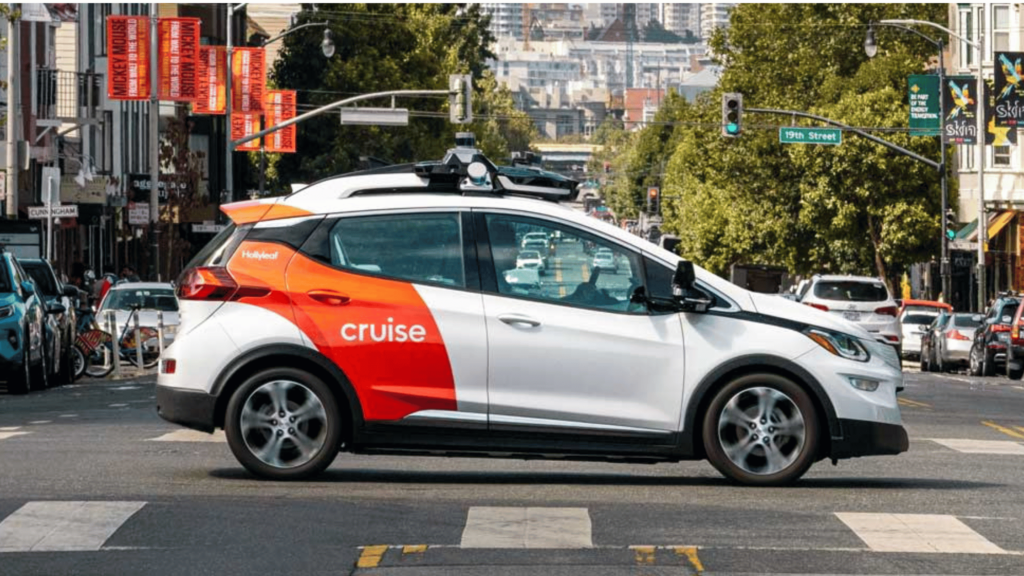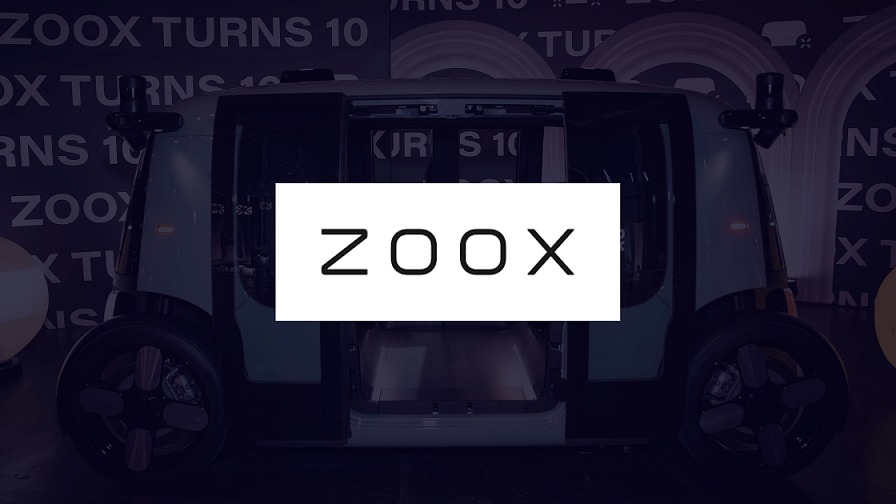The autonomous vehicle (AV) industry stands at the forefront of a technological revolution that is set to redefine transportation as we know it. What was once considered a futuristic dream is now a rapidly evolving reality, driven by advancements in artificial intelligence, sensor technology, and machine learning. By 2025, the AV market is expected to witness exponential growth, presenting a golden opportunity for investors looking to ride the wave of this transformative innovation.
The Promise and Potential of Autonomous Vehicles
Autonomous vehicles are not just about convenience—they represent a paradigm shift in efficiency, safety, and sustainability. These vehicles leverage cutting-edge technologies such as LiDAR, radar, and real-time data processing to navigate complex environments without human intervention. Their potential spans across industries, from reducing traffic fatalities (94% of which are caused by human error, according to the National Highway Traffic Safety Administration) to slashing logistics costs and revolutionizing urban mobility systems.
According to a report by Allied Market Research, the global autonomous vehicle market is projected to grow at a CAGR of 40.1%, reaching $2.16 trillion by 2030. This massive growth is underpinned by increasing consumer acceptance, supportive regulations, and investments in smart infrastructure.
“We are at the cusp of a new era where autonomous vehicles will not only make our roads safer but also redefine business models across transportation and logistics,”
Chris Urmson, CEO of Aurora Innovation, a leader in autonomous trucking solutions.
What Makes Autonomous Vehicles Unique?
Autonomous vehicles are unique because they blend mobility with intelligence. Their ability to continuously learn and adapt through machine learning algorithms makes them increasingly efficient over time. This adaptability, combined with their potential to integrate seamlessly with electric vehicle (EV) platforms, makes AVs a critical component of the transition to greener, smarter cities.
Additionally, AVs are spearheading the shift toward “Mobility-as-a-Service” (MaaS). Companies like Waymo and Zoox are leading the charge in urban robotaxi deployment, while others like Gatik and Aurora Innovation focus on autonomous trucking, addressing the over $1 trillion U.S. freight industry. These innovations are expected to significantly reduce costs for businesses and enhance convenience for consumers, creating diverse revenue streams for AV companies.
Why Autonomous Vehicles Will Be Profitable in 2025 and Beyond
The financial promise of AVs lies in their ability to disrupt traditional transportation models. For example, Waymo’s robotaxi services are already demonstrating profitability in select urban markets, recording over 150,000 weekly paid autonomous rides. Also, Tesla’s recently launched Cybercab and robovan have showcased enormous growth potential. Meanwhile, autonomous trucking solutions are poised to address driver shortages and cut costs by up to 45%, according to McKinsey & Company.
Moreover, government support is bolstering the industry’s prospects. The U.S. government has committed billions toward developing smart infrastructure and encouraging the adoption of AVs through favorable legislation. A 2023 Deloitte survey revealed that nearly 60% of U.S. consumers are open to autonomous vehicles, reflecting a growing market acceptance that companies can capitalize on.
Looking forward to 2025, the autonomous vehicle sector is positioned to become one of the most lucrative investment opportunities of the decade. This article highlights the top five U.S. autonomous vehicle stocks you should consider buying in 2025. Whether you are a seasoned investor or a newcomer to the AV industry, these companies represent the future of mobility—and a chance to be part of an exciting and profitable transformation.
US AV Stocks to Consider Buying in 2025
Here are the top 5 U.S. AV stocks you should consider buying in 2025:
1. Waymo
Waymo, a subsidiary of Alphabet Inc. (Google’s parent company), is widely recognized as a leader in autonomous driving technology. With over a decade of experience and over 20 million miles driven in real-world conditions, Waymo has established a robust operational framework.
The company has expanded its robotaxi services to multiple cities, including Phoenix, San Francisco, and Los Angeles. Its Waymo Driver system is among the most advanced, combining LiDAR, radar, and AI for robust decision-making capabilities.
Profitability Potential
Waymo’s growing fleet of self-driving taxis is expected to generate substantial revenue in urban centers. It is the only self-driving car company that has completed over 150,000 paid autonomous rides per week, offering ride-hailing services across several U.S. cities, including San Francisco, Phoenix, Los Angeles, etc. Also, as a subsidiary of Alphabet, the company has enormous financial support to conduct industry-defining research and stay profitable. Aside from Alphabet, Waymo boasts several investors, including Andreessen Horowitz, Fidelity, Silver Lake, Tiger Global, T. Rowe Price, etc. These private equity firms have all participated in Waymo’s over $5.6 billion investment rounds. Also, Waymo has forged collaborations with automakers like Stellantis, Jaguar Land Rover, Zeekr, and Hyundai to ensure steady scalability.
Can I Buy a Waymo Stock?
You cannot currently buy Waymo stock directly, as it is not a publicly traded entity. However, you can invest in Waymo indirectly by purchasing shares of Alphabet Inc., which trades on the NASDAQ under the ticker symbols GOOGL (Class A shares) and GOOG (Class C shares).
Why Invest in Alphabet for Waymo Exposure?
Alphabet’s diversified portfolio includes Waymo, making it an excellent way to gain indirect exposure to the autonomous vehicle market. While Waymo is not yet profitable, its growing footprint in the robotaxi and logistics sectors positions it as a potential long-term revenue driver for Alphabet. Analysts frequently cite Waymo as a key component of Alphabet’s “Other Bets” segment, which could significantly impact the company’s valuation as AV adoption scales up.
Future Possibilities
There has been speculation about a potential Waymo spin-off or IPO, which could allow direct investment in the company. However, no concrete announcements have been made as of now. If an IPO were to happen, it would likely attract significant investor interest due to Waymo’s leadership in the AV space.
2. Tesla
Tesla, owned by billionaire founder Elon Musk, is a leading automaker that combines EV production with a Full Self-Driving (FSD) suite that continually improves through over-the-air updates. Tesla vehicles equipped with autopilot features are widely used, providing unparalleled access to real-world driving data. Its strong brand presence and customer loyalty create a solid foundation for sustained sales growth.
Recently, Tesla launched its fully autonomous vehicles to the world after a series of unmet deadlines. The event was a watershed moment in the AV industry. The Tesla “Cybercab” and “Cybervan” are mooted to have a robust impact on autonomous ride-hailing.
Elon Musk and the 2024 U.S. Election
Elon Musk was a vocal proponent of Donald Trump in the just concluded U.S. presidential elections, playing a significant role in helping the latter emerge victorious. President Trump has, in turn, started rewarding Mr. Musk by creating a new “Department of Government Efficiency (DOGE)” in his incoming government and making him one of the leaders.
Observers opine that, in addition to regulatory advantages, Musk’s leadership role in DOGE might also enhance investor confidence in Tesla’s future. The company has faced challenges recently, including increased competition from both domestic and international electric vehicle manufacturers. However, the belief that Musk can leverage his influence to navigate these challenges effectively adds a layer of reassurance for investors. Since Election Day, Musk’s wealth has surged by approximately $55 billion due to the rising stock price, further aligning his interests with those of Tesla shareholders.
Should I Buy Tesla Stocks?
Investing in Tesla stocks appears increasingly wise as the company prepares to harness potential benefits from Musk’s government role in the new Trump administration. The combination of favorable regulatory prospects, Musk’s proven track record in innovation, and Tesla’s dominant position in the electric vehicle market creates a compelling case for long-term profitability.
Remember, the future of autonomous vehicles is electric.
3. Zoox
Zoox is an Amazon subsidiary focused on creating purpose-built autonomous vehicles designed specifically for ride-hailing services. The Zoox robotaxi is a bidirectional vehicle that does not require a driver’s seat or steering wheel. It features a symmetrical design with two benches facing each other, creating a lounge-like environment for passengers. The vehicle is fully electric and equipped with advanced safety features, including multiple airbags and sensors that ensure passengers are buckled before the vehicle can operate.
Zoox has tested its self-driving cars in San Francisco, the Las Vegas Strip, and around its headquarters in Foster City, covering over a million miles. The company plans to invite early public riders in 2025 as part of its “Zoox Explorer” program, which will allow selected individuals to experience the service firsthand.
Profitability Potential
As a subsidiary of Amazon, Zoox benefits from substantial financial backing and resources that enable it to innovate and scale its operations effectively. The AV startup company is valued at $3.2 billion as per the latest available filing.
The integration of Zoox’s technology with Amazon’s logistics and delivery services is also poised to create significant cost savings and operational efficiencies, potentially transforming how goods are delivered.
Can I Currently Buy Zoox Stock?
You currently cannot buy Zoox stock as an individual investor because Zoox is a privately owned subsidiary of Amazon. However, one way to indirectly invest in Zoox is by purchasing Amazon stock (AMZN).
4. Aurora Innovation
Aurora Innovation is an autonomous vehicle company that focuses on autonomous trucking—a segment of the AV industry with vast profitability potential. At the helm of affairs at Aurora is Chris Urmson, a pioneer in the AV space who previously led Google’s self-driving car project (now Waymo).
The trucking industry is valued at over $791 billion in the U.S., and Aurora’s solutions address critical issues like driver shortages, high operational costs, and increasing demand for freight efficiency.
Aurora’s focus on long-haul freight ensures a relatively less crowded market with higher profit margins. Autonomous trucking could reduce costs by 45%, as estimated by McKinsey, through increased efficiency and lower labor and fuel costs.
Aurora’s autonomous trucks are powered by its proprietary Aurora Driver platform, which combines hardware, AI-powered software, and real-time data analytics for seamless operation. The platform is designed to be compatible with multiple vehicle types, including Class 8 trucks and passenger vehicles, offering safety, scalability, and adaptability.
Aurora has formed critical partnerships with major industry players, including FedEx, Walmart, Uber Freight, etc., for pilot programs in autonomous freight transportation. They have also partnered with Volvo Trucks and PACCAR (Kenworth and Peterbilt) to integrate its technology into existing trucking fleets.
Profitability Potential
Aurora’s business-to-business (B2B) model ensures steady income streams through long-term contracts with logistics providers and vehicle manufacturers. This approach is less volatile than direct-to-consumer sales and leverages the growing demand for freight efficiency.
Also, Aurora’s focus on freight aligns with global supply chain trends, particularly the rise of e-commerce. Autonomous trucks can operate 24/7 without the need for rest breaks, potentially doubling fleet utilization rates and significantly increasing revenue for customers. This will make Aurora’s technology highly attractive to logistics companies.
By targeting trucking and potentially last-mile delivery, Aurora has positioned itself in a market that could exceed $2 trillion globally by 2030.
Can I Currently Buy Aurora Innovation Stocks?
Yes, you can currently buy Aurora Innovation stocks. Aurora Innovation, Inc. trades publicly on the NASDAQ stock exchange under the ticker symbol AUR. The company went public through a merger with a special purpose acquisition company (SPAC), Reinvent Technology Partners Y, in November 2021.
5. Nvidia
Nvidia is the undisputed leader in Graphic Processing Units (GPUs), which are critical for a variety of applications, including gaming, AI, data analytics, and AV systems. Its GPUs are renowned for their power and efficiency, and Nvidia has a massive market share in this space.
Nvidia’s CUDA platform and GPUs are essential for AI training and inference, making it the backbone of AI advancements across industries. This includes enabling large language models (like ChatGPT) and AI-driven innovations in healthcare, finance, and transportation.
Nvidia is a standout figure in autonomous vehicle technology. Its Drive Platform is a comprehensive AV development suite that provides AI-powered solutions for self-driving cars. Companies like Tesla, Cruise, Zoox, and others use Nvidia’s AV hardware and software for their autonomous driving systems. Nvidia’s Orin chip is a standout product in this field, designed specifically for AVs, with its unmatched processing power.
Profitability Potential
The global AI market is expected to grow at a compound annual growth rate (CAGR) of 37.3% through 2030. Nvidia is at the center of this trend, as its GPUs power AI training and inference in data centers worldwide. According to its 2024 Q2 earnings report, Nvidia’s data center revenue grew by over 171% year-over-year, highlighting explosive demand.
By 2030, the autonomous vehicle market is projected to reach over $2 trillion, with Nvidia’s Drive Platform playing a critical role in enabling automakers to achieve full autonomy. This segment alone has the potential to contribute significantly to Nvidia’s revenue growth.
Can I Currently Buy Nvidia Stocks?
Yes, you can currently buy Nvidia stocks. Nvidia Corporation (NASDAQ: NVDA) is a publicly traded company listed on the NASDAQ stock exchange, and its shares are available for purchase through brokerage accounts or trading platforms.
Conclusion
Autonomous vehicle adoption is no longer a distant possibility—it’s unfolding right before our eyes, and by 2025, it will be a cornerstone of the global economy. The top U.S. AV companies explored above are not just tech innovators; they are pioneers reshaping transportation, logistics, and urban mobility. Investing in their stocks is more than just a financial decision; it’s a chance to be part of a transformative movement that will define the future.
Disclaimer: This article is not financial advice and should not be regarded as such. The reader is advised to further carry out more research before investing in any AV stocks.
You May Also Like:
- 10 Fascinating Things to Know About Nvidia (Key Facts)
- 10 Intriguing Things to Know About the Tesla Cybercab
- Autonomous Mobility: 10 Interesting Key Facts About Beep
- Autonomous Trucking: 10 Key Facts About Gatik
- 10 Intriguing Things to Know About GM’s Cruise
- 10 Interesting Things to Know About Kodiak Robotics in 2024
- Ten Things to Know About Aurora Innovation in 2024

I’m Dr. Brandial Bright, also known as the AVangelist. As a dedicated and passionate researcher in autonomous and electric vehicles (AVs and EVs), my mission is to educate and raise awareness within the automotive industry. As the Founder and Managing Partner of Fifth Level Consulting, I promote the adoption and innovation of advanced vehicle technologies through speaking engagements, consulting, and research as we progress to level 5 fully autonomous vehicles.







